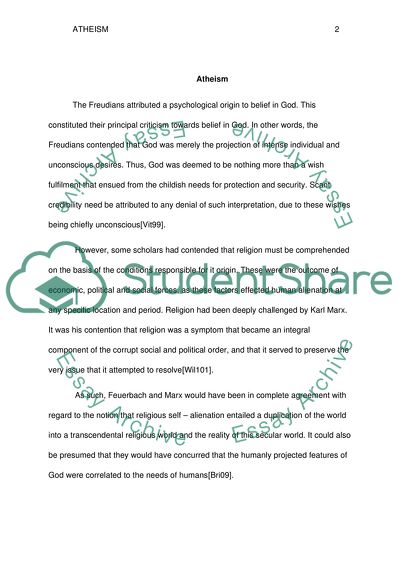Cite this document
(The Issue of Atheism Literature review Example | Topics and Well Written Essays - 1500 words - 1, n.d.)
The Issue of Atheism Literature review Example | Topics and Well Written Essays - 1500 words - 1. https://studentshare.org/philosophy/1803929-atheism
The Issue of Atheism Literature review Example | Topics and Well Written Essays - 1500 words - 1. https://studentshare.org/philosophy/1803929-atheism
(The Issue of Atheism Literature Review Example | Topics and Well Written Essays - 1500 Words - 1)
The Issue of Atheism Literature Review Example | Topics and Well Written Essays - 1500 Words - 1. https://studentshare.org/philosophy/1803929-atheism.
The Issue of Atheism Literature Review Example | Topics and Well Written Essays - 1500 Words - 1. https://studentshare.org/philosophy/1803929-atheism.
“The Issue of Atheism Literature Review Example | Topics and Well Written Essays - 1500 Words - 1”. https://studentshare.org/philosophy/1803929-atheism.


